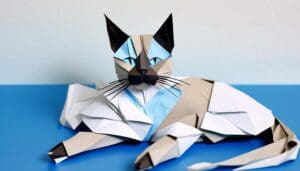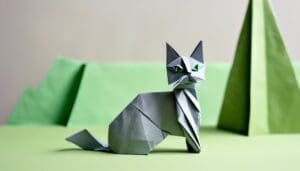As your cat gets older, you might see slight differences in how they act and feel. It’s normal to want to make sure they are as comfortable and supported as possible during their later years.
You may be wondering how to best cater to their needs and ensure they are content and at ease. With a few simple adjustments and thoughtful considerations, you can make a significant difference in your aging cat’s quality of life.
These tips will not only help to ease any discomfort they may be experiencing but also strengthen the bond between you and your cherished cat.
Key Takeaways
- Mental stimulation and enrichment are important for aging cats, so introduce interactive toys and puzzles to engage their minds.
- Keep your cat physically active with age-appropriate activities, such as gentle play sessions and using scratching posts and ramps.
- Ensure your cat stays hydrated by making water easily accessible and considering wet food or broth to increase hydration.
- Regular veterinary check-ups are crucial for monitoring your cat’s health, detecting any issues early on, and providing necessary care and treatment.
Mental Stimulation and Enrichment
Introduce interactive toys and puzzles to engage your aging cat’s mind, keeping them mentally active and content in their senior years. As your cat enters their senior years, it’s important to consider their mental stimulation and enrichment.
Just like humans, senior cats also need regular mental exercise to keep their cognitive functions sharp. Rotate toys and introduce new ones regularly to maintain your cat’s interest and prevent boredom. Create scavenger hunts with treats to encourage problem-solving and mental activity. Engage in games that promote mental stimulation, fostering their overall well-being.
Ensuring mental enrichment for your aging cat is essential for their health and happiness. Consider their dental needs and provide appropriate toys or treats to support dental health. By addressing their mental and physical needs, you can help your senior cat stay content and fulfilled in their golden years.
Remember to also provide easy access to water and a comfortable litter area, as these are vital for their daily well-being.
Physical Activity and Exercise
Senior cats require gentle play sessions and age-appropriate physical activities to maintain muscle tone, prevent stiffness, and promote mobility. Providing scratching posts and ramps can encourage movement and stretching, while low-impact toys and controlled play sessions can keep them active without causing strain. Consider short walks on a leash to prevent sedentary behavior and support your aging cat’s health.
Regular veterinary check-ups are crucial to monitor your cat’s weight, address any potential health issues, and receive guidance on appropriate exercises. It’s important to be mindful of weight loss or gain, as well as dental disease, which can impact your cat’s ability to eat comfortably and stay active. Your veterinarian can provide tailored advice to ensure that your senior cat receives the necessary physical activity and exercise to maintain their well-being.
Hydration and Water Accessibility
To ensure your senior cat stays well-hydrated, make water easily accessible at floor level and place water bowls in various locations around the home to encourage drinking. Senior cats may experience decreased thirst as they age, so it’s important to offer multiple opportunities for them to drink throughout the day.
Consider placing water bowls in quiet, accessible areas where your cat spends time, ensuring they’ve easy access to water whenever they need it. You can also incorporate wet food or broth into their diet to help increase their overall hydration.
Monitoring your cat’s water intake is crucial in preventing dehydration, which can lead to serious health issues. Regular veterinary check-ups can help detect any potential problems early on. Dental problems can affect your cat’s ability to drink, so it’s important to address any dental issues promptly.
Making environmental adaptations, such as providing cozy and comfortable resting spots near water bowls, can encourage your senior cat to stay hydrated.
Consult with your veterinarian to ensure your senior cat’s nutritional needs are being met and to address any concerns about hydration. By prioritizing water accessibility and making adjustments to support your cat’s comfort and well-being, you can help your aging cat stay healthy and hydrated.
Signs of Health Decline
If you notice any of the following signs in your aging cat, it may indicate a decline in their health. Keep an eye out for:
- Decreased activity levels and reluctance to engage in play
- Changes in appetite or weight
- Increased thirst and urination
- Altered grooming habits
- Noticeable changes in mobility
Regular veterinary check-ups are crucial for senior cats to address any potential health concerns early on. Ensuring your senior cat’s diet is suitable for their age and health requirements can help maintain their well-being.
Providing love and attention is essential, and keeping your senior cat mentally stimulated with interactive toys can contribute to their overall comfort. Monitoring your cat’s litter box habits is also important, as changes in this area can signal underlying health issues.
Regular Veterinary Check-Ups
Noticing changes in your aging cat’s behavior can prompt you to prioritize their well-being through regular veterinary check-ups, which are essential for maintaining their health and detecting any potential issues early on. As your cat enters their golden years, it’s important to pay close attention to their health and well-being. Regular veterinary check-ups play a crucial role in preventing and addressing important issues that may arise with senior cats.
By scheduling bi-annual visits, you can ensure that your cat receives the necessary attention from a veterinary professional. During these check-ups, your veterinarian can conduct thorough examinations, including bloodwork, urine analysis, and diagnostic tests. These examinations are designed to catch age-related conditions in their early stages, allowing for timely intervention and treatment. Regular check-ups are crucial to ensure that your older cat remains healthy and comfortable throughout their senior years.
| Regular Veterinary Check-Ups | Benefits for Senior Cats |
|---|---|
| Early issue detection | Preventive care |
| Comprehensive examinations | Timely intervention |
| Monitoring overall health | High quality of life |
| Addressing age-related conditions | Professional care |
Frequently Asked Questions
What Makes Senior Cats Happy?
You make senior cats happy by providing mental stimulation, physical activity, hydration, comfort, and regular veterinary check-ups. Keep their minds active, encourage play, ensure water accessibility, create cozy resting spots, and schedule regular vet visits to ensure their well-being.
How Do You Soothe an Old Cat?
To soothe your old cat, provide mental stimulation through interactive toys, maintain physical activity with scratching posts and controlled play sessions, monitor litter box habits for changes, ensure hydration with accessible water bowls, and recognize signs of discomfort for proper care.
How Do You Enrich a Senior Cat’s Life?
Enrich your senior cat’s life by introducing interactive toys and puzzles to keep them mentally engaged, providing scratching posts and low-impact toys for physical activity, monitoring litter box habits, ensuring hydration, and offering cozy resting spots for comfort.
Why Is My Senior Cat so Sad?
Your senior cat may be feeling sad due to physical discomfort, cognitive changes, or loneliness. Providing a soft bed, regular vet check-ups, and extra love and attention can help comfort and support your aging cat.




